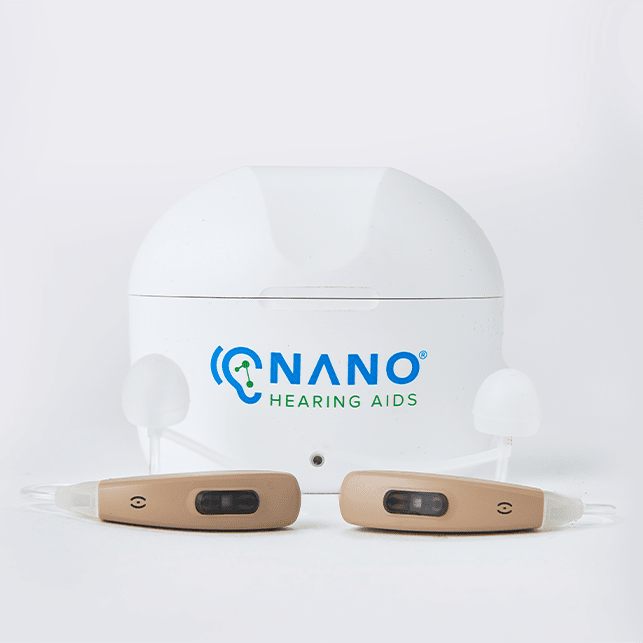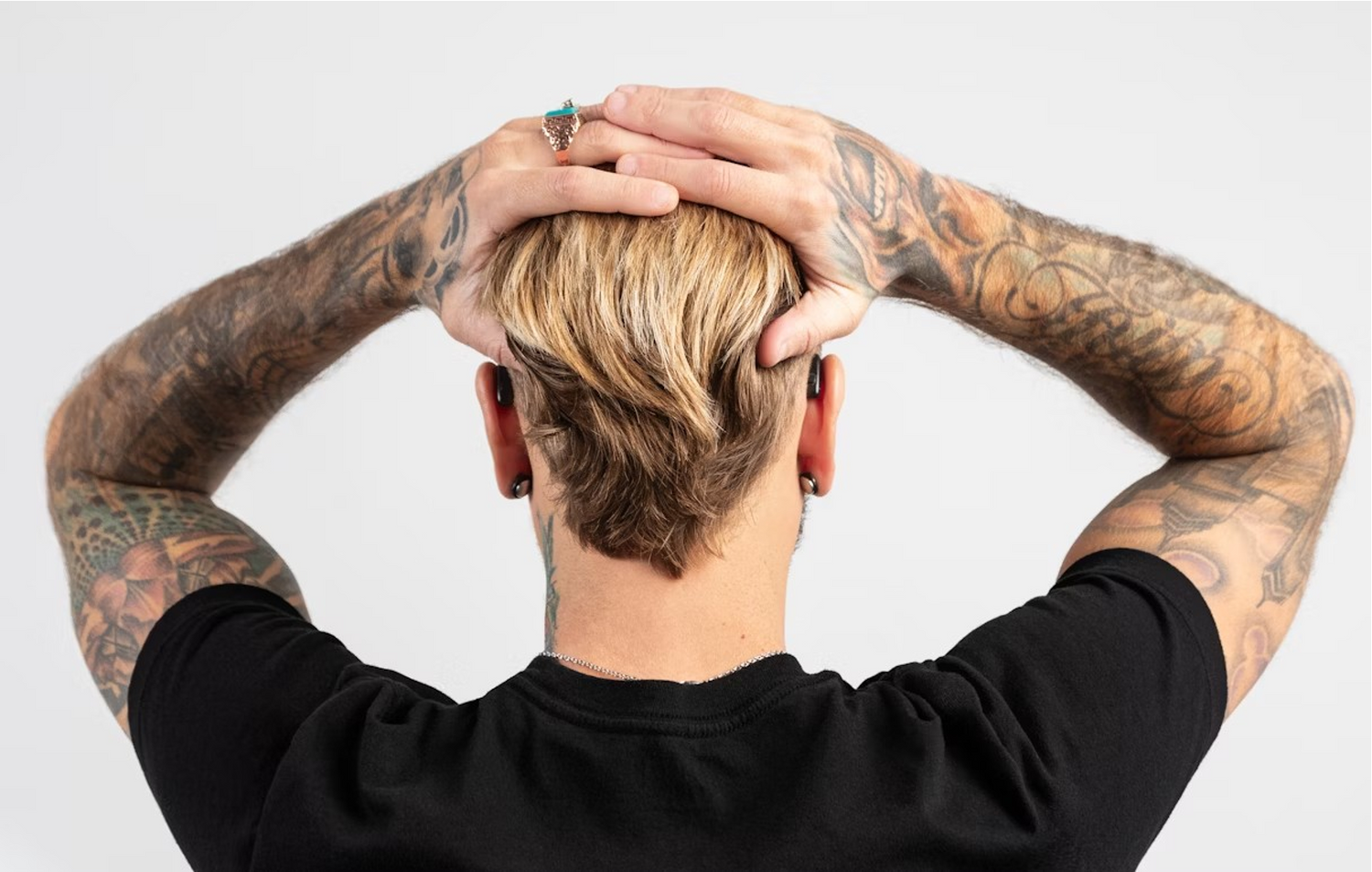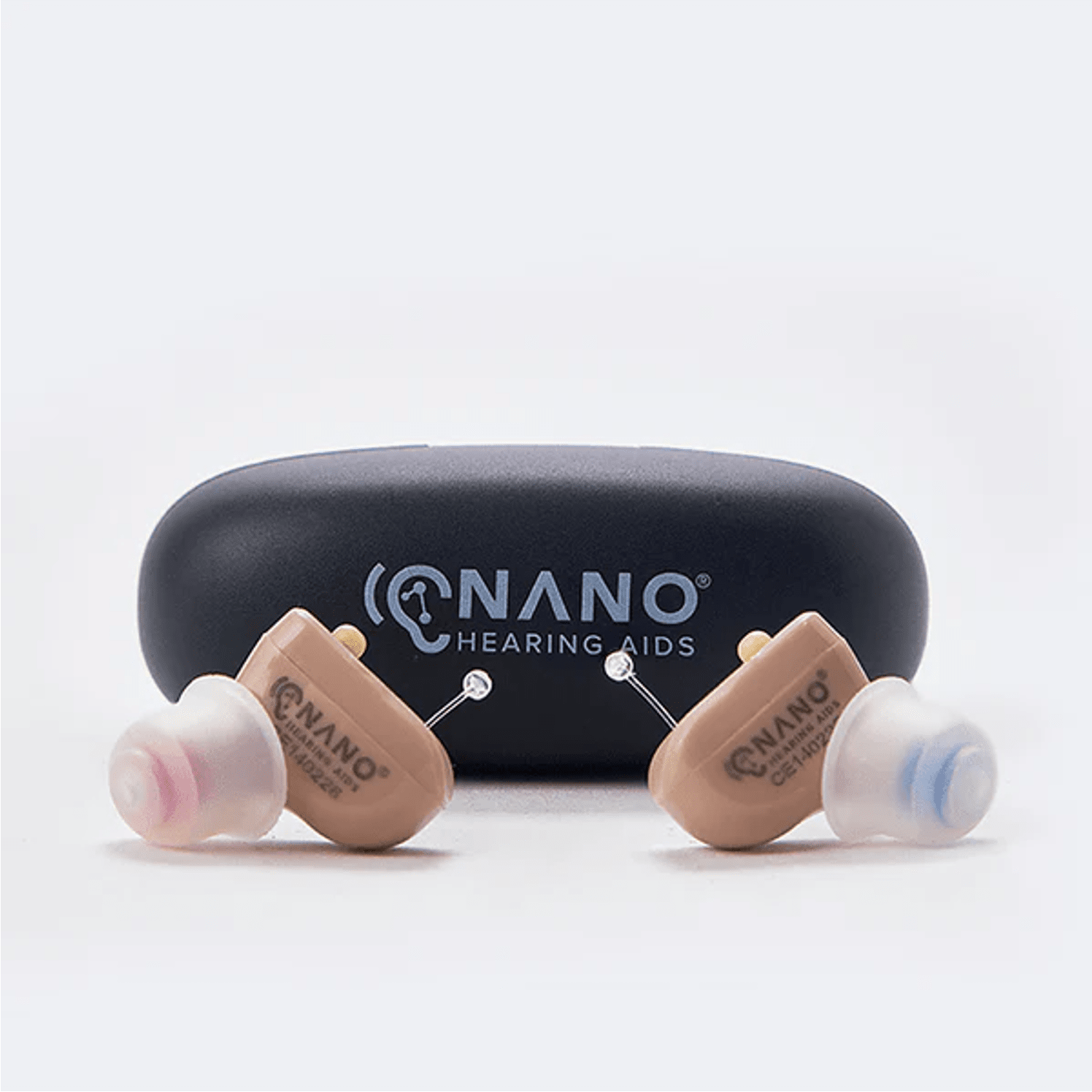Key Takeaways
- Check the battery first if your hearing aid keeps shutting off; it might need replacing or recharging.
- Moisture is a common culprit; ensure your hearing aid is dry and stored properly.
- Wax buildup can block sound and cause malfunctions; regular cleaning is essential.
- Environmental noise interference can cause shutdowns; moving to a quieter area might help.
- Nano OTC hearing aids come with multiple dome sizes for a comfortable fit, which can help prevent accidental shutdowns.
NANO Hearing Aids are FDA-registered, Class I devices. Our OTC hearing aids are designed for individuals over 18 years of age with perceived mild to moderate hearing impairment. With prices starting at just $297, they offer a viable solution for those looking to improve their hearing without breaking the bank.
Why Your Hearing Aid Keeps Shutting Off and How to Fix It
Common Causes of Hearing Aid Shutdowns
Battery Issues
- Low charge, faulty battery, or improper placement can cause shutdowns.
- Check the battery: ensure it's charged, correctly inserted, and free of corrosion.
Moisture and Humidity Exposure
- Moisture can block microphones, speakers, and internal circuitry.
- Store in a dry, cool place and use a dehumidifier designed for hearing aids.
Wax Buildup
- Wax can block sound, leading to shutdowns.
- Regularly clean the hearing aid and inspect for wax buildup around the microphone and receiver.
Physical Damage
- Dropping, exposure to extreme temperatures, or mishandling can cause damage.
- Inspect for cracks or dents and consult a professional if needed.
Environmental Noise Interference
- Electronic devices and noisy environments can disrupt signal processing and cause temporary shutdowns.
Regular cleaning of your hearing aid can prevent issues like shutting off unexpectedly.
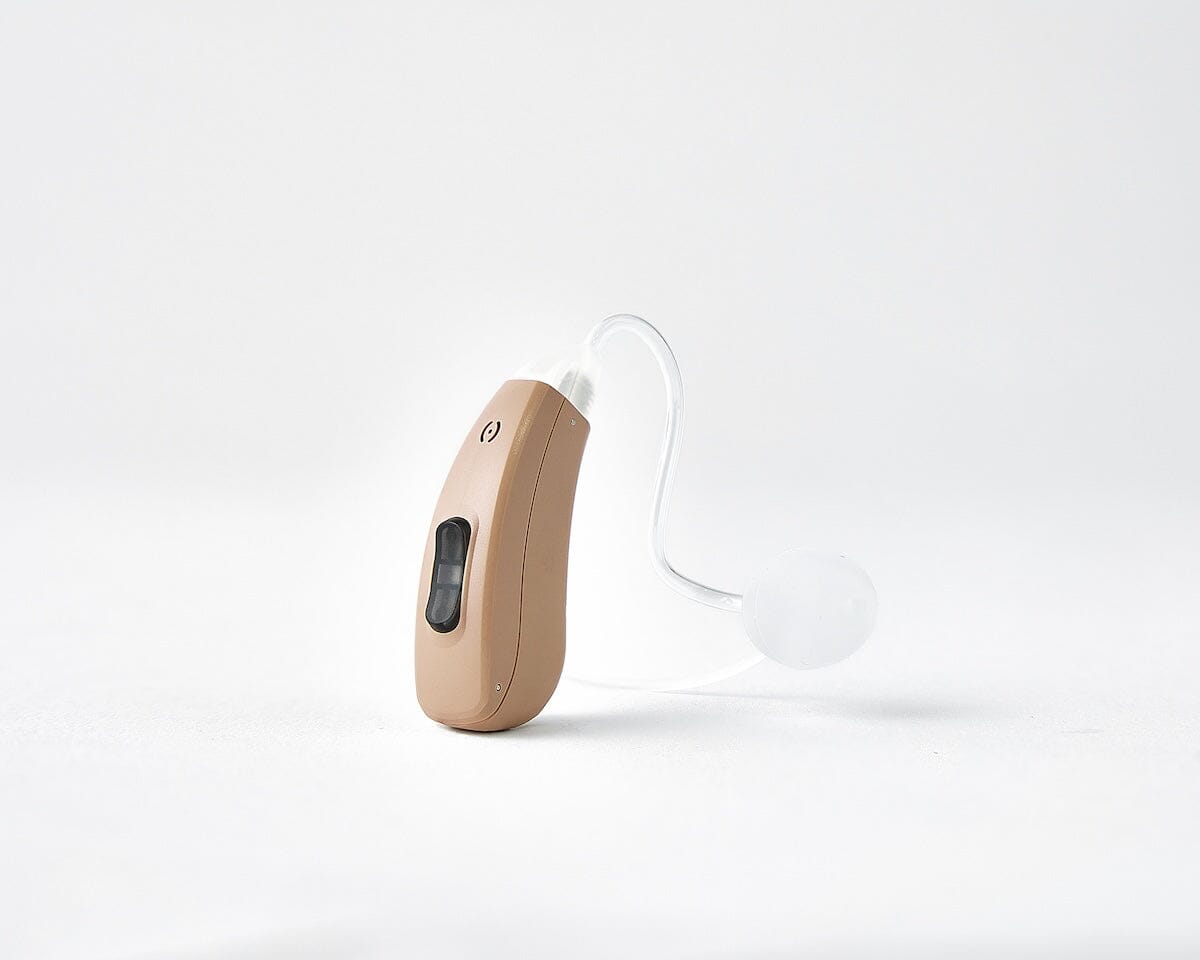
How to Fix Hearing Aids That Keep Shutting Off
Replacing or Recharging the Battery
- Replace or recharge the battery if it's the issue.
- Use the correct type of battery and follow the manufacturer’s instructions.
- Keep spare batteries on hand to avoid interruptions.
Drying the Hearing Aid
- Dry the hearing aid thoroughly if moisture is present.
- Use a dehumidifier or place it in a dry, cool area.
- Avoid heat sources like hairdryers.
Cleaning the Device
- Clean regularly to prevent wax buildup.
- Use a soft, dry cloth for daily cleaning and a small brush or wax pick for hard-to-reach areas.
- Consider using a wax guard.
Adjusting Settings or Environment
- Adjust settings or move to a quieter area if noise interference is the problem.
- Use noise-canceling features if available.
Using a Dehumidifier
- A dehumidifier can keep the device dry, especially in humid climates, and help prevent moisture-related issues.
When to Seek Professional Help
Persistent Issues
- If your hearing aid continues to shut off despite your efforts, a professional can identify the underlying cause.
- They can perform a thorough inspection and recommend the best course of action.
Device-specific Concerns
- Some hearing aids may have unique issues requiring specialized knowledge.
- A professional can offer solutions specific to your device.
Warranty and Service Options
- Many hearing aids come with warranties covering repairs or replacements.
- Check your warranty and service options to see if your issue is covered—you may be eligible for repairs or replacements at little to no cost.
Preventative Measures
Regular Cleaning and Maintenance
- Clean your hearing aid regularly to prevent wax buildup and moisture damage.
- Use a soft cloth daily and a small brush or wax pick for hard-to-reach areas.
Proper Storage
- Store in a cool, dry place when not in use.
- Use a hearing aid dehumidifier to keep it dry.
- Leave the battery compartment open to evaporate moisture.
Avoiding Moisture Exposure
- Avoid exposure to water, sweat, and high humidity.
- Use a dehumidifier in humid climates.
Routine Audiologist Visits
- Regular check-ups can identify and fix potential issues early.
- Audiologists can also provide professional cleaning and maintenance.
How Nano Hearing Aids Can Help
Nano OTC Hearing Aids in their charging case.
At Nano Hearing Aids, we offer a variety of OTC hearing aid models—including behind-the-ear (BTE), receiver-in-canal (RIC), in-the-ear (ITE), and completely-in-canal (CIC). With over 7 years of experience, all our hearing aids are FDA-registered Class I devices designed for adults aged 18+ with perceived mild to moderate hearing loss.
Our First Ear Plus BTE model, part of our advanced lineup, has three dome sizes and a discreet design for all-day comfort. Like all our OTC hearing aids, the First Ear Plus BTE has noise reduction and feedback management technology for sound clarity, and comes with rechargeable batteries and a portable charging case.
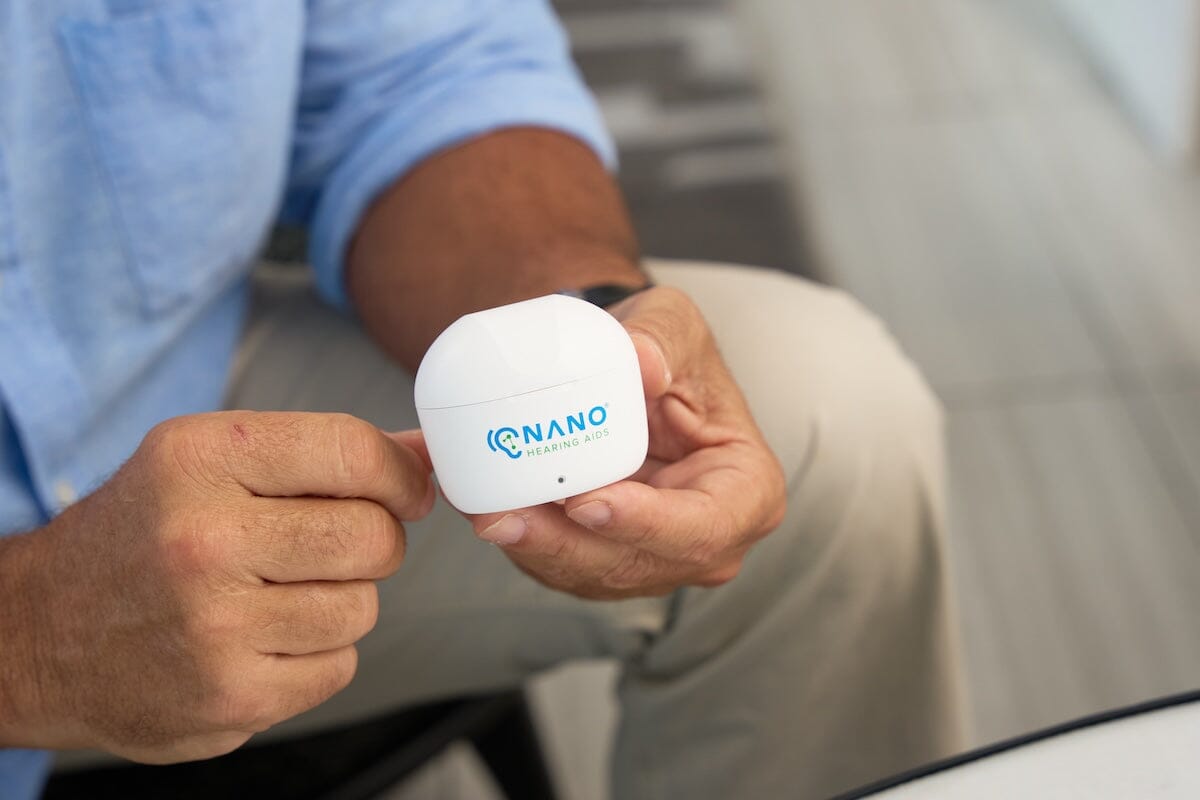
Frequently Asked Questions (FAQs)
What should I do if my hearing aid shuts off unexpectedly?
- Check if the battery is charged and inserted correctly.
- Inspect for moisture or wax buildup; clean and dry the device.
- If the issue continues, consult a hearing care professional.
How often should I change the battery in my hearing aid?
Battery life varies by hearing aid and battery type, typically lasting 3 to 10 days. Keep spare batteries on hand and replace them as soon as you notice a decline in performance.
Can I fix my hearing aid shutdown issue by myself?
Yes, you can often resolve minor issues by checking the battery, cleaning the device, and ensuring it is dry. If the problem persists or you suspect physical damage, consult a hearing care professional.
How do I keep moisture from damaging my hearing aid?
Avoid exposure to water, sweat, and high humidity. Use a hearing aid dehumidifier, store the device in a cool, dry place when not in use, and leave the battery compartment open to help moisture evaporate. If issues persist, consider reviewing resources on hearing aid maintenance.
What products can help keep my hearing aid dry?
A hearing aid dehumidifier is ideal for keeping your device dry and functioning properly.
How do I know if my hearing aid needs professional repair?
If your hearing aid keeps shutting off despite troubleshooting, shows visible damage, or has persistent issues, it’s time to consult a professional for repair.
Why should I choose Nano OTC Hearing Aids?
At Nano Hearing Aids, we provide high-quality, FDA-registered devices that are safe, effective, and easy to use. With customizable ear tips, noise reduction and feedback management technology, and rechargeable batteries, our hearing aids are affordable over-the-counter solutions.
Our First Ear Plus BTE model, for example, is comfortable and easy to operate with a rocker switch—ideal for anyone who wants excellent sound quality at an affordable price.

